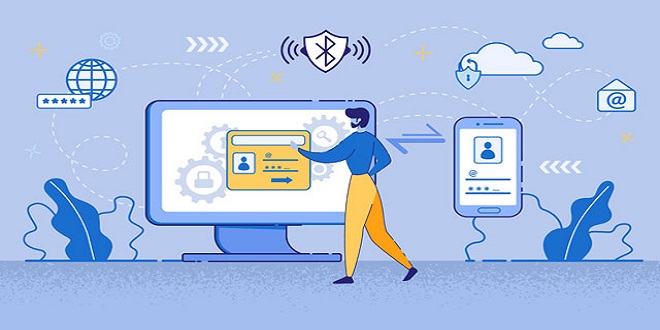AI’s Role in Making Everyday Business Simpler

Businesses are increasingly turning to intelligence technologies to solve their business problems. DataProt statistics reveal that 37% use artificial intelligence to manage their business operations. The data predicts that the AI industry will generate $126 billion in revenues by 2025.
Artificial intelligence is on the rise. It can help you improve your business growth by making quicker, better and more accurate decisions, all supported by quantitative data.
Businesses of all sizes can be transformed by artificial intelligence (AI). Artificial intelligence (AI) can be used to support ever-changing business requirements. It can automate and streamline business processes, generate actionable insights, and improve employee and customer engagement. To get the most from AI, companies must be able to understand its roles and how they can be used to increase profits and scaleability.
The Role of AI in the Current Business Landscape
Artificial intelligence in business does not replace the creativity and intellect of humans. Artificial intelligence can analyze and process large amounts of data faster than the human brain. This can be used to help businesses find patterns and correlations in data previously unknown.
Automation can also help businesses streamline and improve their operations. This will result in increased productivity, employee performance, and better ROIs. With PIM Software, businesses are able to automate product categorization and improve SEO. This can also increase conversions.
Businesses must understand the impact of AI technology to keep up with its growth.
How AI is transforming businesses for the better
This list explores AI’s place in today’s business landscape, and the benefits it offers companies.
1. Sales results that are better
AI can calculate on-demand sales estimates based on customer history and purchasing habits. It also ranks leads according to their conversion potential, which allows sales staff to focus on prospects that have the highest chance of closing. Chatbots can be used by organizations to increase customer engagement and personalize interactions with users.
HBR states that AI in sales can increase revenue by helping businesses grow their business leads by over 50%, reducing call times by sixty to seventy%, and lowering operating costs by forty to sixty percent. These figures show that AI is an option for businesses seeking to scale and maximize profits.
2. Management of customer relationships improved
Major business operations aim to ensure customer satisfaction, and increase engagement. To maintain client satisfaction, it is important to address any concerns promptly.
Firms looking to expand may find it challenging to meet increased demand. Companies are using AI to better serve their clients by integrating AI in their customer service departments.
Businesses can provide exceptional customer service by using chatbots and voicebots powered with AI. These bots are able to help businesses solve problems and manage their tasks. They can also speak with potential customers over the telephone.
Chatbots are able to provide 24/7 service for many users, without the need of human staff. Voice bots, on the other hand can only listen to the conversation and read the emotions of the caller.
AI-powered chatbots are becoming more popular as they can be used to communicate with clients faster and reduce the amount of time that customers wait to get assistance.
3. Optimized business processes
Businesses are increasingly turning to digital technology. Incorporating AI into your day-to-day operations will help you adopt new tech faster and increase organizational agility. As processes become more complex, it is becoming more difficult for human resource to keep up. Automating business operations can increase efficiency and enable employees to concentrate on more important projects.
Automating is another way that businesses can save money on areas like cyber security and maintenance. It can detect potential threats faster than humans and could help protect businesses against cyber attacks. Artificial intelligence applications, in the same way, can be used to support maintenance of critical business infrastructures and ensure smooth operations.
Businesses in all sectors and everywhere are adopting cutting-edge technologies. Automation can reduce IT costs for enterprises, and technologies such as robots or blockchain make information management simpler.
4. Enhanced accounting processes
Accounting is time-consuming, expensive and draining of resources. The automation of accounting processes can increase accuracy and efficiency, as well as reveal previously undiscovered patterns in data using artificial intelligence.
Accounting professionals spend a lot time doing repetitive tasks such as scanning receipts and analyzing transactions, classifying data, and keeping track of price fluctuations. These tasks can all be performed by AI with much greater accuracy than any other person. It also saves employees the mental strain of trying to keep track of all they have to do simultaneously and allows them to focus on a higher priority project. Aside from being able to evaluate data and learn from mistakes, AI systems are able to semi-automate complex procedures such as payroll.
5. Streamlined recruiting and hiring
AI is being used by many companies to aid in the hiring process. AI can be used by human resources managers to assess candidates’ interests and past experiences, and then match them with the most suitable roles.
Hybrid work has seen a rise in remote recruiting, workplace diversity and inclusion, as well as creating new workplace dynamics and accentuating those that already exist. AI is at the core of all new technology. It has become crucial for businesses to take a proactive approach to new technology in order to stay competitive. AI can be used by companies to enhance business strategy and promote natural communication within an organization through the analysis of formal and informal dynamics principles.
Last Thoughts
A.I. A.I. has significantly changed the business landscape, and will continue being a game-changer for businesses for many decades to come. Incorporating AI in all departments of a company’s workplace, including sales, accounting, customer service, and customer support, can be a great way to reduce repetitive tasks, increase employee performance, and improve customer satisfaction. It also supports crisis detection and error prevention in a way that is impossible for humans.
It’s clear to see how companies can leverage it to improve performance in all departments over the next few years. Companies who are proficient in AI and tech will reap significant financial benefits and be able to dominate the market.
Read more: Learn AI and ML



